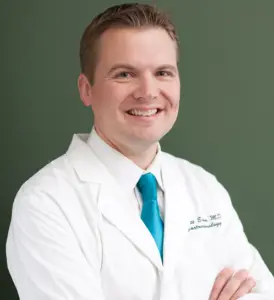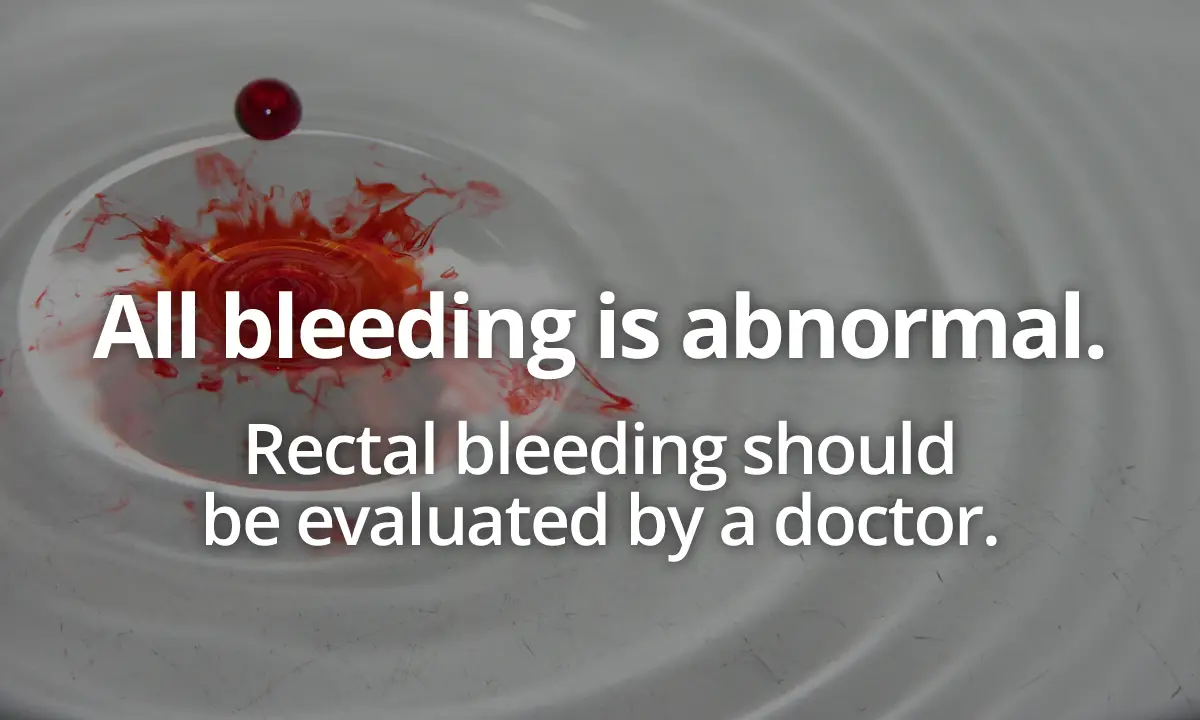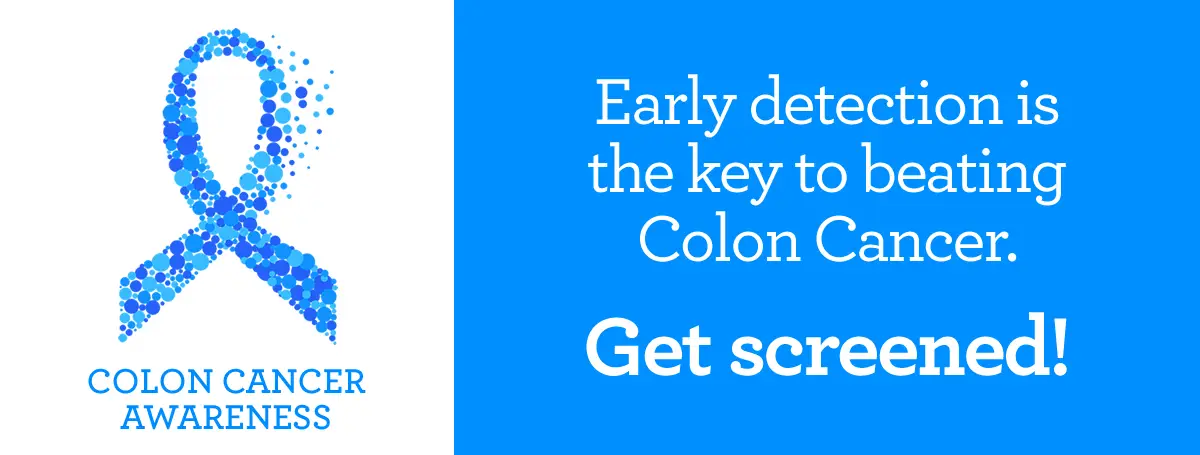You don’t have to look far to see the importance of gut health being discussed. It seems everywhere we turn someone is talking about the gut microbiome and how incredibly important it is for our well-being.
This is because your gut is the home of your immune system, over 40 trillion microorganisms, and is an indicator of your overall health. This complex system has been linked to numerous diseases, including autoimmune disease, diabetes, liver disease, cancers, heart disease, and of course, gastrointestinal (GI) diseases.
So, if you find yourself struggling with persistent gut related issues, it isn’t something you should ignore. Sometimes when you have a GI problem, it’s a red flag of an underlying cause or of health issues that could get worse if left untreated. Either way, don’t ignore warning signs, instead tackle them head on – you could end up saving yourself pain, time, and money down the road.
If you’ve never seen a gastroenterologist before but are struggling with digestive issues, you might wonder when it’s time to see a GI doctor. I’ve created a list of the top 9 reasons to see a gastroenterologist in Plano, TX area to help educate others on the most common symptoms and help lessen any apprehension towards seeing a GI doctor.
1. If you have blood in your stool.
Blood in your stool or any bleeding is a symptom you should never ignore. If you find blood in your stool or see it on the toilet paper, you need to be evaluated by a gastroenterologist or your doctor. It could be a sign of ulcers, anal fissures, hemorrhoids, inflammatory bowel disease, polyps, mass lesions, and more.
Another sign you’ve digested blood is if your stool becomes black, sticky, and tar-like. If you experience signs of bleeding, it is never normal and should be evaluated by a medical professional.
Dr. Eidem’s ADVICE: The leading cause of rectal bleeding is hemorrhoids. I’m pointing this out, so that you don’t jump to the worst conclusion when viewing blood in the toilet. See a gastroenterologist when the bleeding occurs and they will be able to evaluate and treat the cause.
2. If you’re experiencing prolonged abdominal pain or bloating.
Persistent abdominal pain and bloating can make daily activity frustrating and even debilitating. Factors that can contribute to this include:
- Diet
- Stress
- Certain medications
- Crohn’s disease
- Ulcerative colitis
- Small intestine bacterial overgrowth (SIBO)
- Ulcers
This is by no means a definitive list – there are numerous conditions that can cause abdominal pain or bloating. While the causes of abdominal pain are typically benign if the pain is severe it should be evaluated by a physician.
Dr. Eidem’s ADVICE: If you suffer from bloating or distention after eating certain foods, I recommend my patients try an OTC supplement called Atrantil. If you do not receive relief after taking Atrantil, I would recommend seeing a gastroenterologist to be evaluated.
3. If you have heartburn that just won’t go away.
Heartburn is an uncomfortable burning type sensation felt in the mid upper abdomen, which often radiates up into the chest and throat. Nearly everyone will experience heartburn a few times in their life, however, recurring heartburn is not normal.
If you’re experiencing regular heartburn or if the symptoms are interfering with your life, it’s time to make an appointment with a GI doctor. Your heartburn could be a symptom of a more serious medical condition like gastroesophageal reflux disease (GERD) or other related conditions such as Barrett’s esophagus.
Dr. Eidem’s ADVICE: If you have heartburn symptoms more than a couple of times per week for a prolonged period of time, you should consider a trial of OTC heartburn medications and schedule an appointment with a gastroenterologist for further evaluation.
4. If you’re having difficulty swallowing.
If swallowing suddenly becomes an issue, it can be cause for concern. Also called, dysphagia, having a hard time swallowing can be an indicator of many things including esophageal strictures, damage to the esophagus from acid reflux, esophageal muscle weakness, an esophageal mass lesion, and inflammatory conditions that lead to esophageal narrowing. All of these causes can all contribute to issues with the esophagus carrying food or liquids into the stomach.
Dr. Eidem’s ADVICE: Difficulty swallowing is never normal and needs to be worked up by a gastroenterologist as soon as possible.
5. When it’s time for colorectal cancer screening.
Polyps that form in the colon or rectum can turn into colorectal cancer. Fortunately, screening with colonoscopy can catch these polyps before they become cancerous. This is why screening is strongly recommended at the age of 50 years old. Risk factors that might make you want to get tested earlier than 50, include:
- If you have inflammatory bowel disease – Crohn’s or ulcerative colitis.
- If you have relatives who have had colorectal polyps or cancer.
- African Americans over the age of 45.
- If you have a familial adenomatous polyposis or Lynch syndrome.
Dr. Eidem’s ADVICE: Early detection is the key to beating Colon Cancer. I encourage everyone to follow the recommended screening guidelines and help to build awareness on how to beat this cancer by discussing with family and friends near the age of 50.
6. If you develop new food sensitivities and intolerances.
If you’ve recently developed food sensitivities, intolerances or allergies, especially to wheat or grain products that contain gluten, it could be a sign of a more serious medical condition called Celiac disease. It’s a good idea to see a gastroenterologist when these food reactions occur because they can cause damage to the lining of the intestines, which can lead to a cascade of health problems.
Dr. Eidem’s ADVICE: If you identify that you are sensitive to gluten and successfully remove it from you diet, you should be checked for Celiac disease to evaluate for any damage it may have caused.
7. If there’s a significant change in bowel habits.
A change in bowel habits may not seem like a big deal but it could be an indication of something more serious. If you notice a change in color, texture, shape or frequency be sure to take note of the changes and make an appointment with your doctor.
Don’t write these changes off because changes in stool habits can be a sign of celiac disease, Crohn’s disease, ulcerative colitis, cancer, gallbladder disease, and more.
Dr. Eidem’s ADVICE: You can learn more on the meaning of various stool shapes and sizes by reading my blog article on changes in bowel movements.
8. If you’ve been diagnosed with hemorrhoids, inflammatory bowel disease or any other GI condition such a severe gastroesophageal reflux disease.
Sometimes GI conditions are diagnosed by a primary care physician but once you know you’re dealing with an issue of the gut, you should ask for a referral to a gastroenterologist. GI diseases are often chronic, need ongoing care, and a comprehensive treatment plan.
Dr. Eidem’s ADVICE: Many of my patients are surprised by how they are able to minimize the impact of these diseases on their day-to-day life with careful guidance. Don’t try to muscle your way through the painful symptoms of IBD, hemorrhoids, or acid reflux. Make an appointment with a Plano, TX gastroenterologist and start your journey towards relief.
9. If you’re experiencing unexplained weight loss.
While many of us wouldn’t mind if we lost a few pounds, unexplained weight loss can be an indicator of a serious health issue. If you lose more than 5 percent of your body weight over four to six months, you should see your gastroenterologist and be checked for IBD, ulcers, cancer, and more.
Dr. Eidem’s ADVICE: Unexplained weight loss, or losing weight without trying — can be a manifestation of an underlying illness and should be evaluated by a medical professional.
When It’s Time to See a Gastroenterologist in Plano, TX
If you have any of the nine issues listed above, you should make an appointment with a gastroenterologist. Patients often asked me, “Do you have to you have to have a referral to see a gastroenterologist?” This is completely dependent on your health insurance. Be sure to call the doctor you’d like to see and your health insurance to determine your options. I encourage you to call my office at 972-867-0019 and my staff would be happy to answer any insurance questions.

Additionally, I’ll ask you about your health history, diet, and lifestyle. There is no judgement here – only detective work to help us identify the underlying cause of your GI issues. The more information you can provide me the better.
I’m Dr. Matthew Eidem and I have been helping patients in the Dallas and Plano TX areas that are experiencing gastrointestinal issues for over 10 years. When you see me or someone on my team, we work with you to identify and correct the underlying problems so you can get your health and your life back. You can request an appointment here or call 972-867-0019.




